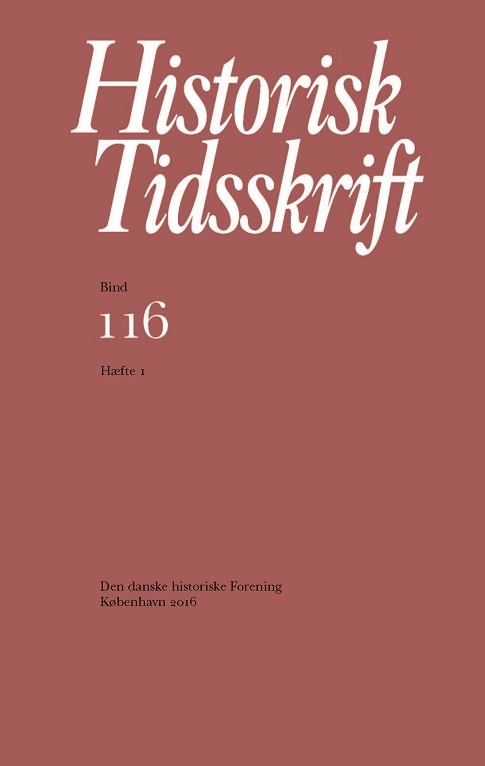Mordet på præsident Kennedy i den kollektive erindring
DOI:
https://doi.org/10.7146/ht.v116i1.56806Resumé
The assassination of President Kennedy in the collective memory
The assassination of President John F. Kennedy in Dallas, Texas, on November 22, 1963, was a relatively simple murder case, which was quickly solved with the apprehension of Lee Harvey Oswald, a Marxist and a former defector to the Soviet Union. But when Oswald was killed two days later while in police custody by Jack Ruby, a shady night club owner with ties to organized crime, doubts about the official explanation started to spread. This article describes how the nation’s collective memory about the dramatic events in November 1963 has been influenced by commemorations, official investigations, the conspiracy movement and popular culture.
At first, the collective memory was dominated by the official explanation that a deranged, lone assassin murdered the president for no apparent reason. This fitted well with the dominant world-view amongst the elites according to which irrational forces lurked among the people and needed to be held in check by a rational leadership. This explanation was challenged in 1966-67 by skeptics, known as ’assassination buffs’. These were mostly left-wing critics of the Vietnam war, or victims of McCarthyism, who claimed that the government had misled the public. The movement to reopen the case suffered a temporary set-back when a trial collapsed, but following the Watergate scandal and revelations about abuses of the CIA and the FBI during the Cold War, Congress initiated a new inquiry. During the following decade, the public debate was dominated by conspiracy theorists who tried to identify the culprits: the mafia, CIA, FBI, Pentagon, exile Cubans, Castro, KGB, etc. This development culminated in 1991 with the movie JFK, which explained the assassination as a coup d’etat with the aim of ending President Kennedy’s movement towards détente with the Soviet Union. This obvious misrepresentation of history led to a return to the original narrative about the lone assassin. Commemorations of the assassination also suggest that the controversy has subsided and that the public remembers the events as a point of renewal. The debate about the collective memory about the Kennedy assassination has been a contest between two conflicting world-views, the elitist which sees history as influenced by coincidences, and the popular which explains events as the result of conspiracies. Possibly, the renewed belief in the single assassin indicates that Americans are now willing to accept the role of coincidence in public affairs and history.
Downloads
Publiceret
Citation/Eksport
Nummer
Sektion
Licens
Ophavsret til bidrag i Historisk Tidsskrift tilhører forfatterne og Den danske historiske Forening som udgiver af Historisk Tidsskrift. For illustrationer gælder den ophavsret, som står anført i billedteksten. Ophavsretslovens almindelige bestemmelser gælder, hvilket vil sige, at ophavsretten gælder i 70 år efter forfatterens død. Bidrag i Historisk Tidsskrift må derfor, med forbehold for en ”moving wall” på tre år, frit downloades, læses, gemmes, anvendes og citeres (med kildeangivelse) i privat og videnskabelig sammenhæng, men de må ikke helt eller delvis genudgives af tredjepart, heller ikke i redigeret form, uden tilladelse fra forfatterne og Den danske historiske Forening. Henvendelse skal i så fald rettes til Historisk Tidsskrifts redaktion på histtid@hum.ku.dk.





